Recently brought on as Talent Management Principal for Walgreens Co., Angela Howard knows that a job “can spark your passion or kill it.” That’s why she decided to more deeply explore her own major early on. Discovering the field of industrial/ organizational psychology led Angela to an internship, a job, and consequently shaped her entire career.
Angela swears by the positive impact her college network has on her future success, as well as the choice to further her education through a masters program at Elmhurst College. Now an adjunct psychology professor at her alma mater, downtime can be sparse. Still, she is an active volunteer—just last year, she joined the Board of Directors of The Seed of Hope foundation, a Chicago nonprofit serving girls and teens.
Angela lives by the philosophy of stepping out of your comfort zone- to her, growing pains are a sign of improvement. “You can’t grow standing still,” she says. She carries this mantra through her classroom and office, working to bring out the best in her students and helping her company do the same in their hiring practices. Talent management isn’t just about finding stellar employees- Angela focuses on engaging and retaining employees, nurturing that talent to move the company forward. With resilience, strategy, and flexibility—along with tons of to-do lists and a ready supply of caffeine—finding and utilizing talent is nothing foreign for this contessa.
EDITOR'S NOTE: Angela is now a Career Contessa Mentor! Click here to book personalized career advice with her.
Her Starting Point
You earned your B.A. in psychology and human resource development from Northeastern Illinois University in 2010. What was it about these areas of study that first sparked your interest?
Early in my academic career as an undergrad, I wanted to be a clinical psychologist. It wasn’t until I attended an entry level Industrial/Organizational Psychology course as a part of my electives that I began to understand the prospect of studying behavior at work. It was a fascinating transition, as I had known little about the field. My thinking behind the change from a clinical psychologist to an applied organizational psychologist was pretty simple – you spend 8 hours a day at work, and a job can spark your passion or kill it. At the time, this was an over-simplified way of thinking about the human condition at work, but the more I studied, the more I became fixated on the idea of a mutually fulfilling relationship between an employer and employee and what an impact that would make.
You also hold an MA in industrial/organizational psychology from Elmhurst College. What made you decide to take your education one step further and pursue this degree? How did your MA help you get to where you are today?
Getting an MA wouldn’t have been possible or even an option for me without all of the mentors and advisers that have guided me throughout my academic and professional career. Many of the networks and connections I made in undergrad through university organized affiliations such as the Honors Program, Psi Chi and the McNair Scholars program set me up for success and surrounded me with over-achievers. I also love an environment of learning freely. Pursuing my MA was just another opportunity for me to meet others that would be able to challenge me as much as I challenge myself in a safe environment.
What was it about the organization development and talent management field that interested you? What, or who, inspired you to pursue a career in this area?
The amazing aspect of my background is that it set me up for a broad range of professional opportunities in a variety of industries. Organizations of all shapes, sizes and structure want to know “how can I bring out the full potential of my people to bring out the full potential of my business?” In turn, there are a variety of professionals with multiple backgrounds including fields like Human Resources, Organizational Effectiveness and Industrial/Organizational Psychology that can help organizations answer that question.
While at Northeastern Illinois University I had a unique opportunity to “tour” the HR function at Beam Suntory (previously Jim Beam) while fulfilling a paid internship. I was introduced to the full gamut of opportunities and was able to apply my academic knowledge to improve the way the organization strategically hired, developed and retained great employees.
The internship opportunity to sample all the different areas put me at an advantage to explore my own strengths and determine what got me excited to come into work every day!
After receiving my BA, I was offered a job at Beam Suntory as the Organization Development Specialist, and this was an opportunity to further refine my craft and areas of specialty.
In addition to your busy career and your passion for volunteering, you also teach as a graduate adjunct professor at your alma mater, Elmhurst College. Could you tell us a bit about your role at the college and how it came about? Why did you decide to get into teaching?
After graduating with my MA in Industrial/Organizational Psychology at Elmhurst back in May of 2013, I remained actively involved in the program – including acting as a mentor to other alumni, current students and prospective students. This was a way for me to come full circle and provide the same support and mentorship that I was lucky enough to receive.
The I/O MA Program at Elmhurst takes pride in the fact that they have many of their alum (who are also applied professionals in the field) teach in the program. I was asked to join my colleagues as an adjunct professor just last spring of 2014.
My first year as an instructor was more exploratory than anything. I had performed hundreds of trainings in organizations for individuals and groups, but teaching in academia was an entirely new realm for me. I was driven by the challenge. It also made sense given my journey and dedication to growing the program at Elmhurst.
After the first year under my belt, I realized how fulfilling it was to be back in the program “on the other side.” I was able to take the lessons learned experienced as a graduate student and apply them to pave the way for upcoming professionals. Selfishly it provided me the opportunity to stay fresh on core concepts that can quickly be lost in the hustle and bustle of the working world.
Her Big Break
How did you first land your job at Rotary International?
After receiving my MA and having an amazing 6 year career at Beam Suntory, I knew it was time for me to step out of my comfort zone. Sounds weird, right? Why would I leave an amazing, well-paying job in my field? The simple answer is – growth. I have a philosophy that you can’t grow standing still and even though I had a sweet gig, it was time for me to branch out and experience more. My main goal was to apply my expertise in another industry in order to round out my resume and versatility.
Luckily, I was connected with the head of Learning and Development at Rotary International a full year before I was actually looking. This was not the only time my network had yielded a return for me. Around the same time, I was looking for my next big break, the head of Learning and Development reached out to me with an opening. The exciting opportunity to work for a prominent non-profit AND apply my skills to help build their Talent Management program was an easy choice and excellent career move for me at the time.
What would you say was the most valuable lesson you learned during your time at the organization?
Rotary served as a foundation of knowledge for me in many different areas, but the one that resonates is “resilience.” Entering a non-profit from a for-profit organization proved to be a difficult and challenging transition for me. Things that made sense in a for-profit environment were foreign in nonprofit and vice-versa. I had to quickly think outside of what was, up until that point, my “truth” and flex my style for getting things done in a new environment. Needless to say, my resilience for change has spiked and my experience influencing in multiple industries and environments is a great skill I hope to continue to put into practice.
You were recently offered a position as the Principal for Talent Management Delivery at Walgreens. Congrats! How did you decide to make the leap from Rotary to this new role? Was it a difficult decision, or did it feel like the natural next step in your career?
Yes! This is fresh news, and it’s a bittersweet transition for me. The talent management opportunity at Walgreens’ headquarters came to me from a colleague I used to work with at Beam Suntory. Yet again, my network came through for me!
To be honest, I was hesitant to follow through on the prospect given I was only at Rotary for 16 months and we were right in the middle of implementing a Talent Management program.
The reason why I decided to leave Rotary and pursue the opportunity at Walgreens was because I couldn’t shake the feeling of excitement when I left my interview. The vision of returning to the for-profit world, for a Fortune 50 company and an award-winning Learning and Talent team scared and thrilled me all at the same time. The perfect mixture of fear of change, challenge and excitement has always been a recipe for growth and success for me, so I couldn’t pass up the offer!
As a college professor, you are in a valuable position to impact younger generations. Do you ever find this intimidating? What message or lesson do you most hope to get across to your students?
Absolutely. I think every educator asks themselves at one point or another “how did I get up here and why should these students be listening to me?” Being a student once before in the program I now teach in is a daunting thought. I find myself, however, continuing to be a student just as much as “professor” and I realize that this tactic has sparked the most learning in myself and in the students. Rather than being a talking head who knows it all, I become a student who happens to know a bit more about context and how keys concepts taught in my class can be applied.
I then realize that this is a tactic I have used throughout my career. Regardless of how much of an “expert” I am (or think I am), I’ve always pushed myself to be a student. If there is one lesson I hope that comes across to my students, it would be to carry their sense of wonder and excitement around learning throughout their careers.
As a talent management professional, a big part of your job involves helping employers hire only the best and the brightest for their staff. What are your strategies for knowing what kind of employee a candidate will be if they get hired? How do you detect positive and negative traits in people?
I always like to think that identifying super-stars is a mix of science, cultural fit and opportunity. Organizational psychologists have put lots of work and application into understanding strategies to identifying key talent. These strategies need to be fit for purpose for the organization’s culture and ways of working.
Organizations that carry a heavy emphasis on talent will often ask behavioral based questions aimed at identifying an individual’s fit for a role AND the organization. Behavioral-based questions often start with the sentence: “Tell me a time when…” and the interviewee is asked to think back to a time they demonstrated their reaction to a common work-place scenario or carried out a task that is core to the needs of the position. The reasoning or “science” behind behavioral-based questions is that past behavior predicts future behavior. This is a core assumption that drives my thinking (and many others in the field) around hiring talented people.
Her Perspective
In addition to your busy work schedule, you also volunteer for a number of causes, like the Seed of Hope Foundation, for which you act as volunteer engagement chair. How do you juggle your career with your passion for volunteering? Why are these causes so important to you?
Volunteerism is certainly time consuming, but I consider giving back a key facet of my career. I see it as my duty to give back to the same communities that nurtured me into who I am today– even if it only makes a small ripple.
My tactic for juggling any responsibility I have is to set goals and continue to be honest (with myself) about time and capacity. For example, I aim to coordinate at least one fundraiser for a cause each year around the holidays.
Late last year, I had the honor and opportunity to join the Board of Directors for a non-profit called The Seed of Hope Foundation. The Seed of Hope Foundation is a small non-profit servicing mostly teenage girls in the Chicagoland area. This organization provides a variety of programming to build self-esteem and leadership in underserviced, underrepresented youth through life-skills training and mentoring. Helping young girls reach their full-potential was a driving force to joining the Board for this organization.
Bottom line, volunteering reminds me how small I am. I know, this sounds horrible, but let me explain. Giving back to my community absolutely humbles and strips me down to realities that are much too big for me to solve on my own. While at work, I’m in control of what gets done. As an agent of change for my community, I am faced with much larger issues than what is in front of me.
What would you say keeps you the most motivated and driven in your career? What is your ultimate goal?
I can’t say that I have an ultimate goal. Continuous self-improvement and reinvention has been a driving factor for my success thus far – in all facets of my life, including career. There is nothing more fulfilling and satisfying to me than looking at the road behind me and realizing that I’m moving toward an even better place. Each move I have made to better my career has been strategically full of growing pains and discomfort – paired with tremendous growth and excitement. This is why an ultimate goal is a bit unrealistic for me. I don’t want to stop growing!
Which of your accomplishments to date are you the most proud of? Why?
Receiving my MA is at the top of the list. Mainly because it was not only an accomplishment or opportunity to open doors for me, but it has and will be a standard and example for others close to me now and for years to come.
Although women have taken a lead on receiving advanced degrees, gender disparities continue to emerge for minority women. Being a woman of color, I was driven by the opportunity to close this gap and encourage other women to do the same by demonstrating an advanced degree as a tool for self-sufficiency, success and stability.
And finally, what do you wake up looking forward to? What’s next for your career?
Right now, I’m looking to learn and absorb all of the great experiences my career has afforded me so far. Because of my need to “dabble” and experience, I have met and made connections with SO many different people that have enriched my career and contributed to my journey. I’m not naïve to the fact that I still have lots of knowledge and experience to acquire, so my 10 year plan is to hone my craft and truly be a thought-leader in my field. This may include continuing my career as an internal consultant or expert in an organization OR branching out and considering opening up my own firm.
I’ve also day-dreamed about going back to school to get my Ph.D or Psy.D (an applied doctoral degree), but I think I have plenty to keep me busy for now!
EDITOR'S NOTE: Angela is now a Career Contessa Mentor! Click here to book personalized career advice with her.
You May Also Like
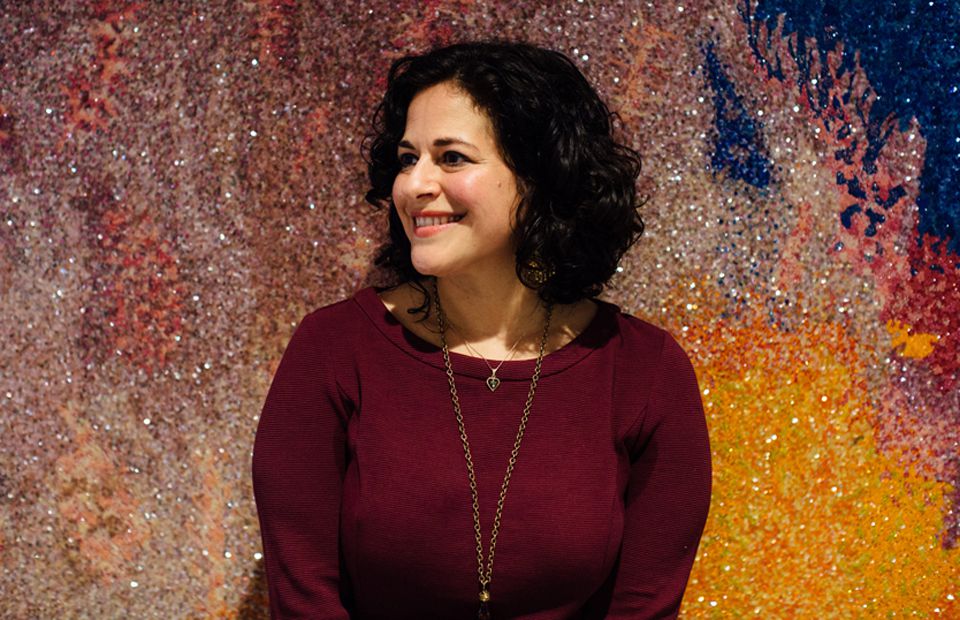
Consumer Goods
Our New Dream Job? Vice President of Social Consciousness & Innovation
"The truth is, having a more responsible supply chain or more responsible business is made up of lots of small actions. And one thing that I really love about my work is that nothing is black and white. It's all gray space."
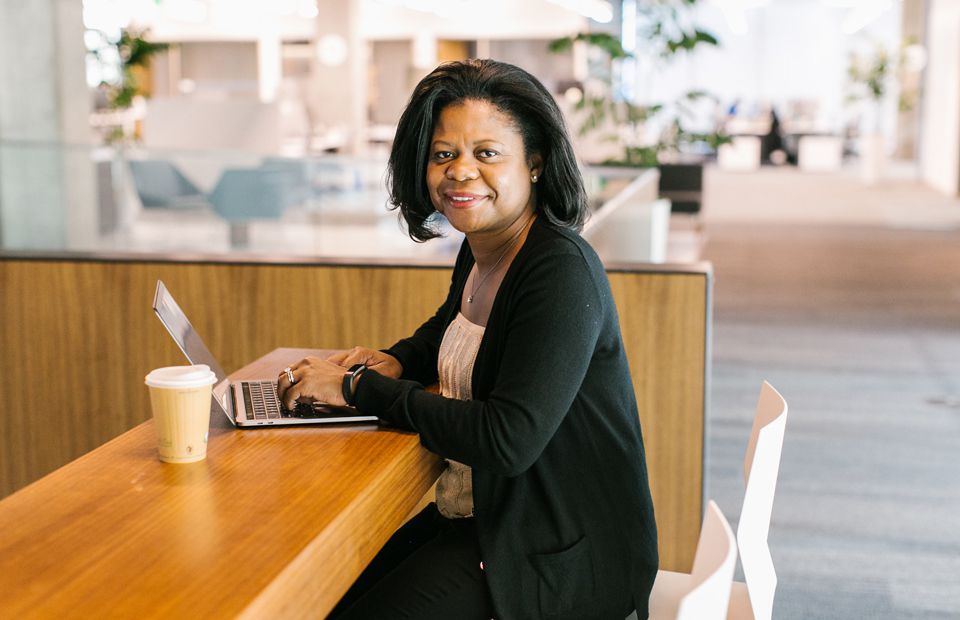
Consumer Services
An Executive at Intuit on How to 'Send the Elevator Back Down'
"What I often tell engineers—especially women engineers—is that it’s good to be excellent, but you’ve got to make sure it’s not a well-guarded secret."
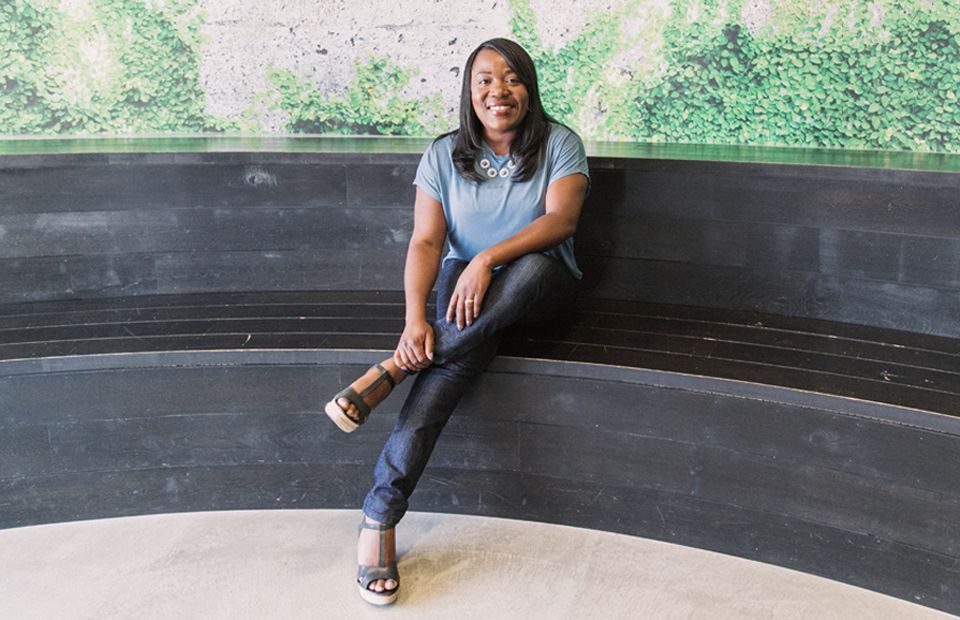
Consumer Services, Technology
A Top Lawyer Talks Leadership, Transparency, and a Music Empire's Goals for Diversity
As Chief Counsel at Pandora, Adelmise Warner has a few thoughts on leaning in.

Consumer Goods
Rising Tide Society's Founder on Why Not Everyone's Cut Out for Entrepreneurship
Natalie Franke on creative entrepreneurship and her journey with Rising Tide Society
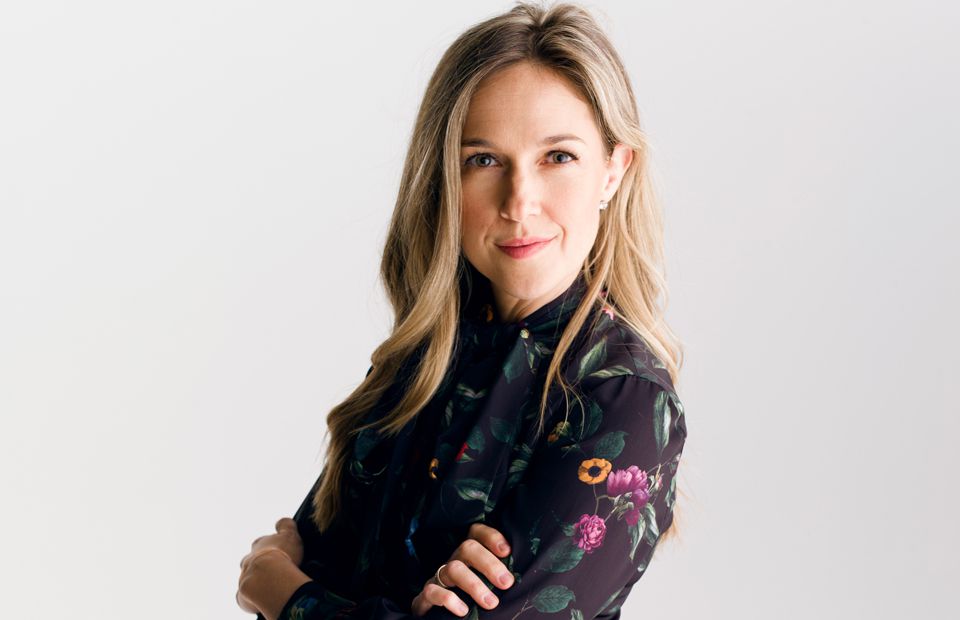
Consumer Services, Technology
Here's How a Female V.P. at a Tech Startup Faces the Gender Gap
Nikki Pechet on writing your own maternity leave policy and taking a job for joy, not money.
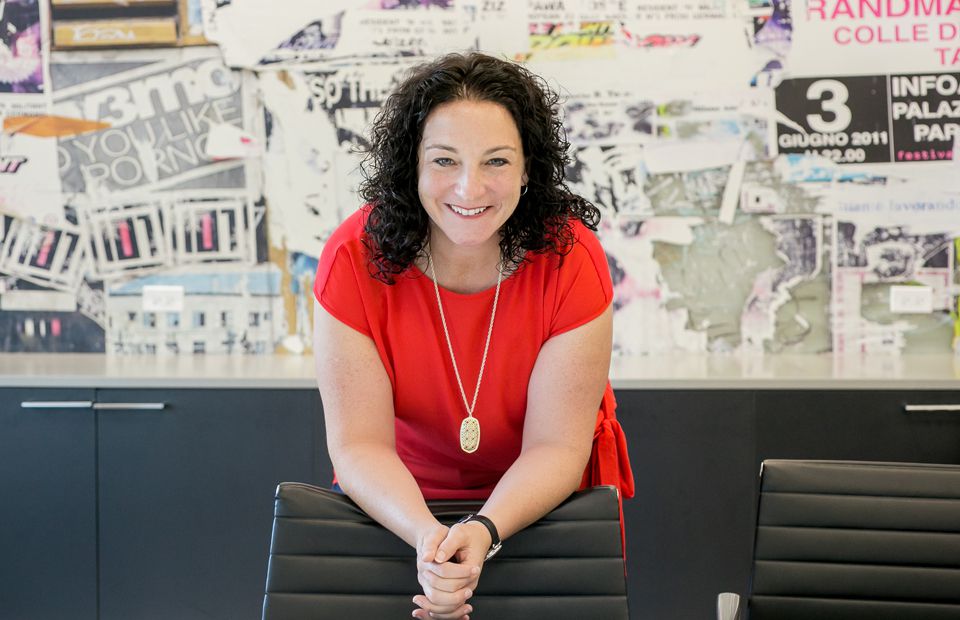
Consumer Goods, Technology
A Sales V.P. on What It's Like to Work at Pandora
Casey Forbes is living an audiophile's dream career.
Get the Best Career Advice Delivered To Your Inbox
Join our newsletter to stay in the loop.
